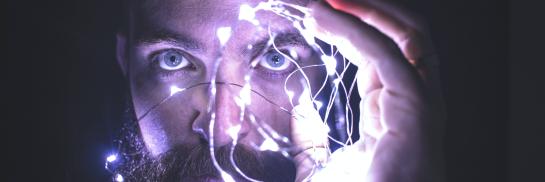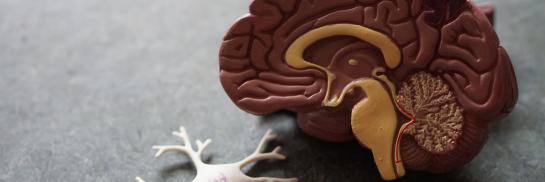Brain stimulation to improve implicit motor sequence learning
Neural networks underlying implicit motor sequence learning in Parkinson's disease: Effects of non-invasive brain stimulation
Project supervisors
Prof. dr. Natacha Deroost (PE – BRUCC, BBCO), prof. dr. Kris Baetens (PE – BRUCC, BBCO), prof. dr. Eva Swinnen (LK – RERE Neuro)
Project researcher
drs. Mahyar Firouzi
Project duration
6 years: 2 years VUB Funding (Jan 2020 – Nov 2021), 4 years FWO Funding (Nov 2021 – Nov 2025)
Description
Implicit motor sequence learning (IMSL) is the inherent ability to learn to learn to perform motor skills, consisting of multiple single movements, in a specific sequential order (e.g., reaching, dressing, turning, typing). This type of learning, which is essential for daily life activities, is impaired in individuals with Parkinson’s disease (PD). In PD, basal ganglia dysfunction leads to alterations in the brain activity in the cerebellum, making it a prime neural model to study the contributions of the basal ganglia and cerebellar networks to IMSL.
In this project, I will apply transcranial direct-current stimulation (tDCS, a non-invasive brain stimulation technique) to the primary motor cortex (M1) and cerebellum of individuals with PD and healthy controls during IMSL, in order to stimulate the basal ganglia and cerebellar networks, respectively. Since M1 and cerebellar tDCS directly affect IMSL, this will allow me to draw causal conclusions on the relationship between these networks and IMSL.
An additional objective of this project is to advance our understanding of the influence of stimulation focality on IMSL by determining differential effects of conventional tDCS and novel High Definition (HD) tDCS of M1 on IMSL. Combined, these goals will expand our fundamental insight into the contributions of the basal ganglia and cerebellar networks to IMSL in PD. These theoretical insights may ultimately serve as input to develop evidence-based clinical tDCS applications for the rehabilitation of individuals with PD.
Funding
Fonds Wetenschappelijk Onderzoek (FWO)

Cognitive and neural correlates of inhibitory control in (sub)clinical disordered eating
Project supervisors
Prof. Dr. Natacha Deroost (VUB), Prof. Dr. Kris Baetens (VUB), and Prof. Dr. Laurence Claes (KUL)
Project researcher
Manon Saeys
Project duration
+/- 4 years
Description
Despite the well-known heterogeneity in the clinical presentation of eating disorders (EDs), i.e. restrictive vs. binge-eating/purging types, the factors contributing to the development, maintenance, and clinical manifestation of EDs remain poorly understood. Prefrontal inhibitory control (IC) is supposed to play a key role in EDs symptomatology: binge-eating/purging types exhibit poor IC, associated with overall hypo-activity of the right dorsolateral prefrontal cortex (rDLPFC), whereas restrictive types show superior IC and a corresponding hyperactivity of the rDLPFC. Nevertheless, findings remain inconsistent due to methodological heterogeneity. Additionally, given that non-disclosure and unreliability of self-report are thorny problems in the diagnosis of EDs, the primary objective is to develop objective, reliable, transdiagnostic neurocognitive measures of IC to inform early detection, differential diagnosis, and treatment of (sub)clinical EDs subtypes. An additional diagnostic challenge is posed specifically in adolescence by the underdevelopment of self-reflection at this life stage, partially due to incomplete prefrontal maturation processes. Moreover, the extensive developmental changes of the frontal brain, critical in inhibition processes, likely play an important role in how ED behaviour develops, maintains, and differentiates. However, research in adolescents, particularly incorporating neural measures, is generally scarce. To this end, the secondary objective is to advance our fundamental neurodevelopmental insight in the etiology of (subtypes of) EDs, i.e., the evolution of prefrontal self-regulatory functions in (sub)clinical EDs throughout adolescence. Combined, these objectives will pave the way for new diagnostic procedures, circumventing difficulties associated with self-report assessment tools, especially important for early detection and prevention of EDs. An additional objective is to determine whether high-definition transcranial direct current stimulation (HD-tDCS) - used to modulate the excitability the DLPFC - can lead to an improvement of IC and related eating behavior in individuals with subclinical disordered eating. This may contribute to the development of evidence-based tDCS protocols that can be applied in prevention and treatment programs of EDs.
Funding
Strategic research program VUB.

MENTiS
Promoting Mental Health through the ENTourage in high-performance Sport
Project supervisor
Prof. dr. Paul Wylleman
Project researchers
dr. Jolan Kegelaers, dr. Koen De Brandt, dra. Laura Spolverato
Project duration
2023-2024
description
The overall aim and vision of the ‘promoting Mental health through the ENTourage in high-performance Sport’ (MENTiS) project is to help optimize mental health initiatives within European high-performance and talent development sports organizations. To this end, the project will develop new community-based interventions targeting the athlete entourage (i.e., coaches, support staff, significant others). More specifically, the objective is to develop evidence-based mental health educational resources and tools centred around three key pillars: (a) mental health literacy, (b) mental health ‘first aid’ competencies, and (c) mental health ‘self-care’ competencies. These educational resources and tools will be developed, implemented, evaluated, refined, and eventually widely disseminated within the project lifespan. The project provides a direct added value within the EU context by focusing on the development of mental health competencies in the important, yet often overlooked, population of entourage members in high-performance sport.
Funding
Erasmus+ Cooperation Partnership

Virtual Reality to prevent self-injurious behavior in hospitalized patients with mental health problems
Project supervisors
Prof. Dr. Imke Baetens (imke.baetens@vub.be), Prof. Dr. Nathalie Vanderbruggen (Nathalie.Vanderbruggen@uzbrussel), and Prof. Dr. Cleo L. Crunelle (CleoLina.Crunelle@uzbrussel.be)
Project researchers
PhD Candidate: Joyce Van Den Meersschaut (joyce.van.den.meersschaut@vub.be) and Prof. Dr. Seline Van den Ameele (seline.vandenameele@uzbrussel.be)
Project duration
February 2023 – September 2024
Description
The International Society for the Study of Self-injury (ISSS, 2018) defines non-suicidal self-injurious behavior as "an intentional, self-inflicted injury to the body, without accompanying suicidal intent" (American Psychiatric Association, 2013). Non-suicidal self-injury (NSSI) is an unhealthy behaviour used to cope with intense emotions and stress.
New technologies are improving efficiency in healthcare. They bring opportunities and contribute to faster and better recovery of patients (Flockenhaus, 2018). VR Technology has already received positive feedback in the mental health field (Valmaggia, 2016). In a focus group by K. Kruzan (2020), those with lived experience indicated the feasibility for VR intervention to cope with urges for NSSI, but up to date no study has implemented and evaluated the effects of VR to diminish urges for self-injury.
The aim of the study is to investigate the feasibility and acceptibility of Virtual Reality Technology in patients with (non-suicidal) self-injury (NSSI) urges. We aim to investigate the following:
- Assessing the feasibility and acceptability of a stress-reducing Virtual Reality Technology
- Assess the feasibility and acceptability of an attention-distracting VR intervention
The effectiveness of the VR intervention will be evaluated using:
- ecological Momentary Assessment (EMA) of urge and frequency of self-injury,
- decrease in emergency medication,
- secondary effects such as changes in emotional- and cognitive regulation

SMARTS
Strengthening mental health and resilience through schools
Project supervisor
Prof. dr. Imke Baetens
Project researchers
dr. Jolan Kegelaers, Lisa Van Hove, prof. dr. Martijn Van Heel, prof. dr. Paul Wylleman, prof. dr. Veerle Soyez
Project duration
2023-2027
Description
Mental health problems are one of the main contributors to the global burden of disease in young people. According to the WHO, 1 in 7 adolescents experience a mental disorder (e.g., depression, anxiety). Moreover, up to 20% of school-going youth have engaged in non-suicidal self-injury (NSSI). These prevalence rates have doubled since the COVID-19 outbreak. This mental health burden is considerably greater in Urban youth, compared to peers in rural settings. These sobering numbers highlight the need for the development and testing of (preventive) mental health interventions for adolescent youth. The current project is thus timely and highly important as it aims to develop an evidence-informed multilevel and multicomponent school and sport-based mental health program for adolescents. The project aims to promote mental health by (a) increasing mental health literacy, (b) strengthening resilience, and (c) preventing psychological symptoms (such as depression, non-suicidal self-injury and suicidal thoughts). To contextualize the intervention to the Brussels Urban context and maximise uptake and impact, a Participatory Design (PD) approach will be adopted. With this project we aim to tackle SDG3: Promoting good health and well-being in youth.
Funding
VUB OZR Citizen Science project
Project website

Emotion regulation skills training for adjudicated youth: A feasibility study
Project supervisors
Prof. dr. Imke Baetens and Prof. dr. Martijn van Heel
Project researchers
Prof. dr. Maria Zetterqvist (LiU, Sweden), Prof. dr. Johan Bjureberg (KI, Sweden), Prof. dr. Peter Theuns (VUB), Prof. dr. Chris Schotte (VUB), Prof. dr. Olivier Mairesse (VUB), dr. Zahra Azadfar, Shokoufeh Vatandoost (VUB, PhD student), Lisa Van Hove (VUB, PhD student), Joyce Van Den Meersschaut (VUB, PhD student)
Description
The program is an emotion regulation training for adjudicated youths in community institutions in Flanders. This training programme is originally developed by a team in GI Beernem and contains 6 sessions of 3 hours (B-erg) and is adapted and adjusted by an expert-team of researchers (Prof. Imke Baetens (VUB, Belgium), Shokoufeh Vatandoost (VUB, Belgium), Prof. Van Heel (VUB, Belgium), Prof. Maria Zetterqvist (LiU, Sweden): Emotieregulatie Training Gemeenschapsinstellingen. ET aims to teach youths how to deal with their emotions and regulate them. ET entails 8 sessions of 2 hours, where the first 6 sessions are planned preferably 2 times a week, and sessions 7 and 8 are planned with a few weeks after session six, to ensure enough time to practise newly learned skills in daily life. Specifically the training starts with emotional awareness and acceptance, continues with working on emotional expression and then working on emotional vulnerability and trauma stabilisation and finally working on skills. The goals of the training are the following:
- Learn to accept and be open to emotional responses.
- Learn to identify and label emotions.
- Learn to express emotions in an adaptive way
- Learn insight into the relationship between emotion, cognition and behaviors, and the role of the environment
- Learn to control emotional impulses
- Learn to be aware of emotional inputs
- Learn emotional clarity

Neural mechanisms underlying sequence learning in the cerebellum
Project supervisors
Prof. dr. Natacha Deroost (PE – BRUCC, BBCO), prof. dr. Kris Baetens (PE – BRUCC, BBCO), Prof. dr. Chris Baeken (GHEP Lab, Ghent University; UZBrussel)
Project researcher
Catalina Duta
Project duration
4 years
Short description
Sequence learning is defined as the ability to acquire information and learn how to properly organise it in successive actions. Everyday life employs a series of sequential actions required for daily tasks, such as speech, skill acquisition and physical activities such as sports and driving. Therefore, it is apparent that sequence learning is a fundamental aspect of human behaviour, as it underlies indispensable cognitive processes and learning mechanisms. This project aims to investigate neural mechanisms involved in sequence learning in the cerebellum, as well as possible interactions between the cerebellum, basal ganglia and cortical areas during perceptual and motor sequence learning.
This project will investigate sequential learning in healthy young adults using behavioural reaction time experiments, as well as neuroimaging techniques such as functional magnetic resonance imaging (fMRI). Additionally, transcranial direct current stimulation (tDCS) will be used in order to influence behaviour through brain activity modulation. With this project we aim to 1) uncover evidence for the use of cerebellar neurostimulation in the reinforcement of cognitive function and 2) define the optimal parameters under which neurostimulation can improve sequence learning. Possible applications in the clinical field include therapeutic strategies for patients with damage or dysfunction of the cerebellum, such as neurodegenerative diseases (Parkinson's disease and Huntington's disease) or stroke. Additionally, this research could also aid patients undergoing speech therapy, as the involvement of the cerebellum has been proposed in sequential language processing.

Non-invasive brain stimulation as a treatment for substance use disorders
Project supervisors
Prof. Dr. Natacha Deroost (natacha.deroost@vub.be) and Prof. dr. Kris Baetens (kris.baetens@vub.be)
Project researchers
PhD Candidate: Helen Tobback (helen.tobback@vub.be)
Project duration
January 2021 – December 2024
Description
Addiction is a severe chronic affliction with a large detrimental individual and societal impact. The effectiveness of existing treatments is limited, necessitating the investigation of novel treatments. Transcranial direct current stimulation (tDCS) is a type of non-invasive brain stimulation where a weak current is passed between scalp electrodes. Several studies have documented a positive impact of tDCS in addiction. However, both the applied methods and the outcomes lack consistency. This project aims to systematically investigate and optimize the effectivity of tDCS in addiction, involving both the stimulation protocol (e.g., dosage, target tissue) as well as interindividual differences underlying variability of treatment effects (e.g., substance type, neurocognitive functioning, personality, severity of the addiction). A critical and novel method would be to apply objective neuroimaging (EEG) as an outcome measure. The end goals of this project are to promote the clinical utility of tDCS in addiction and to further the understanding of the fundamental neurobiological processes involved in addiction.

A Pilot study of Wellbeing and Resilience Building Training for transgender, non-binary, gender non-conforming and gender-fluid persons in Brussels Capital Region
Project supervisors
Prof. Dr. Imke Baetens (imke.baetens@vub.be) and prof. dr. Kris Baetens (kris.baetens@vub.be)
Project researchers
PhD Candidate: Laura Lingenti (laura.lingenti@vub.be)
Project duration
Oktober 2023 – September 2027
Description
In this project, Laura Maria Lingenti will confront the marginalized position of transgender, non-binary, and gender-diverse individuals (TGNC) in public spaces, highlighting their vulnerability to adverse mental health outcomes due to societal stress factors. She will incorporate innovative mixed-methods research to address the lack of data on experiences and needs of the TGNC population. The study aims to address this issue in the Brussels Capital Region through three research objectives: investigating demographics and mental well-being, identifying healthcare barriers through qualitative analysis, and creating a resilience-building intervention called "POWER."
